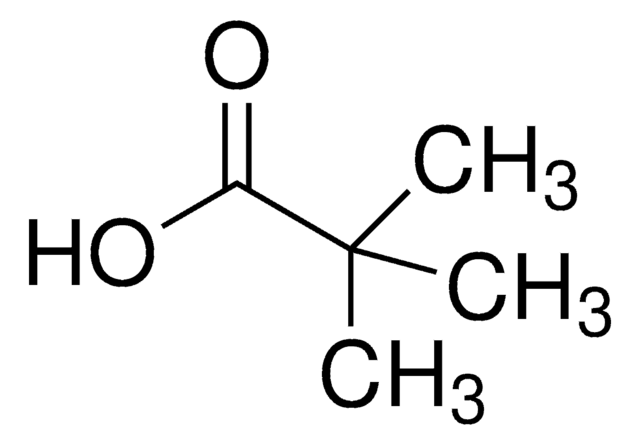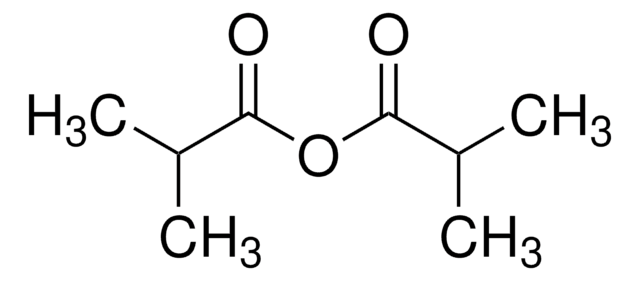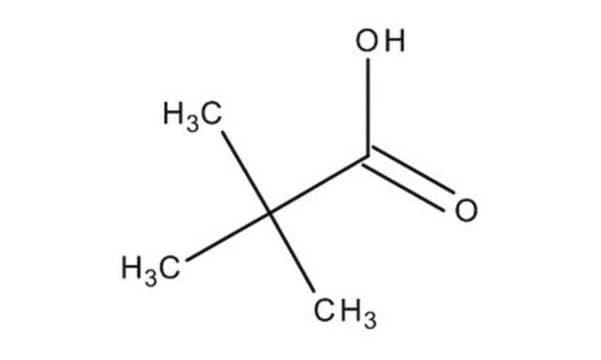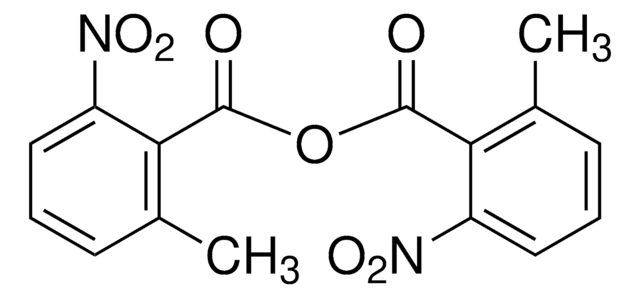143502
Trimethylacetic anhydride
99%
Synonym(s):
Pivalic anhydride, 2,2-Dimethylpropionic anhydride
About This Item
Recommended Products
Quality Level
Assay
99%
form
liquid
refractive index
n20/D 1.409 (lit.)
bp
193 °C (lit.)
density
0.918 g/mL at 25 °C (lit.)
functional group
anhydride
ester
SMILES string
CC(C)(C)C(=O)OC(=O)C(C)(C)C
InChI
1S/C10H18O3/c1-9(2,3)7(11)13-8(12)10(4,5)6/h1-6H3
InChI key
PGZVFRAEAAXREB-UHFFFAOYSA-N
Looking for similar products? Visit Product Comparison Guide
Application
- in solid-phase oligonucleotide synthesis
- in kinetic resolution of racemic 2-hydroxy-γ-butyrolactones with diphenylacetic acid
- as acylation and esterification reagent for anilines
- as acylation and esterification reagent for phenols
Signal Word
Warning
Hazard Statements
Precautionary Statements
Hazard Classifications
Acute Tox. 4 Oral - Eye Irrit. 2 - Skin Irrit. 2 - Skin Sens. 1 - STOT SE 3
Target Organs
Respiratory system
Storage Class Code
10 - Combustible liquids
WGK
WGK 3
Flash Point(F)
162.5 °F - closed cup
Flash Point(C)
72.5 °C - closed cup
Personal Protective Equipment
Choose from one of the most recent versions:
Already Own This Product?
Find documentation for the products that you have recently purchased in the Document Library.
Customers Also Viewed
Our team of scientists has experience in all areas of research including Life Science, Material Science, Chemical Synthesis, Chromatography, Analytical and many others.
Contact Technical Service













